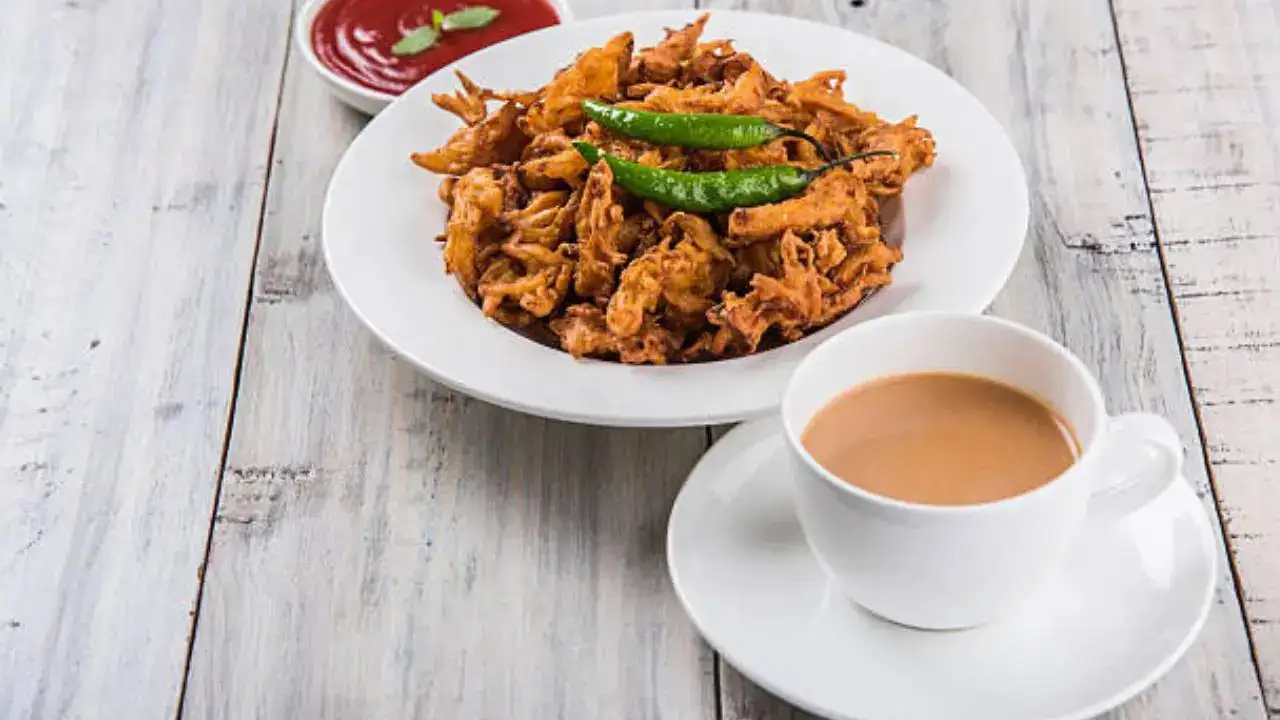
During monsoon, most people feel heavy, bloated, or oddly acidic after indulging in tea and pakoras
According to a survey conducted by the Indian Culinary Forum, pakoras and masala tea are among the top two monsoon foods that people crave during the rainy season. And why not, as both are a delicious mix of tradition, comfort, and street food magic.
The poll said most Indians across cities love to gorge on their favourite pakoras made from onion, potato, paneer, or even palak—a go-to comfort snack in the monsoon. Often paired with masala chai, pakoras rule the roost. However, when it comes to your health, the combination takes a backseat.
Why are chai pakoras unhealthy?
As perfect as this rainy-day pairing sounds, it might not be the kindest combo for your digestive health. During the monsoon, most people feel heavy, bloated, or oddly acidic after indulging in tea and pakoras.
According to experts, most pakoras—especially when you order them from outside or eat from a neighbourhood stall—are deep-fried in oil that has likely been reused multiple times. This only adds to the production of trans fatty acids. These fats are linked to various health problems, including obesity, heart disease, and increased cholesterol levels.
Add to that the use of besan or gram flour and maida, and you are eating something that sits heavy on your stomach and slows everything down. Also, tea is packed with tannins and oxalates, which reduce nutrient absorption like iron and calcium when consumed with food sources rich in those nutrients.
Fried and spicy foods can cause symptoms of indigestion, acidity, and even food poisoning.
Lowers immunity
Doctors say you may feel bloated after eating chai-pakoras – and it can also lead to lower immunity during a season when you really cannot afford it. The monsoon already puts your immune system under pressure.
Add repeated digestive stress to the mix, and your body gets distracted from fighting off the seasonal sniffles and sneezes.
What should you eat in the monsoon?
There are a few nutritionist-approved quick food swaps that help you stay strong, especially when the skies are grey.
Eat small meals
Do not skip meals just because you feel bloated and humid. Make sure to eat small and light meals throughout the day instead of one heavy meal, as it helps you stay nourished without overwhelming your digestive system.
Spice-infused water
Add spices like ajwain, saunf, or jeera into your water bottle, which help reduce gas, bloating, and indigestion and are extremely gut-friendly.
Eat whole grains
Whole grains are not just good carbs; they are fibre-rich and keep your energy steady apart from feeding the good bacteria in your gut.
Eat fermented foods
Consume more of dahi, idli, dosa, and dhokla – fermented staples that add probiotics to your diet. They help balance your digestion and strengthen your immunity.
